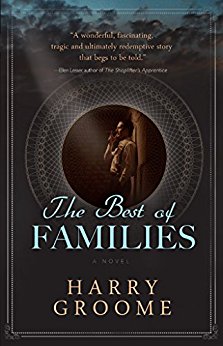
However shaky their situation the Delafield parents retain their snobbish view of anyone not of their status. When the main character, Fran, reveals that he has impregnated a French girl whose father works in a mill, both of his parents coolly suggest paying her off to have an abortion. When Fran refuses, and tries to appeal to a sense of “honor” in marrying her, the parents are aghast at the “lack of breeding” in a girl they have never met. The mom, probably the worst piece of work in the novel, attacks the son for having the wedding on the night of a society party where Louis Armstrong will perform.
The sister, probably the most astute member of the family, informs Fran that “No matter how hard you try, or I try, we’ll never really be free from our tribal heritage.” Nevertheless, Fran attempts to, following the well-worn tradition of going to war, in, of all places, Vietnam. Fran’s choice of armed forces is testament to how much he wants to shed his upbringing. Since World War II, those with privileged upbringing usually select the Air Force or Navy, which is supposedly a smooth transition for them. The ground troops by turns, and this was extremely evident in Vietnam, were peopled by the minorities and the poor, who didn’t have the luxury of dodging the draft courtesy of a student deferment.
Although pledging himself to ground combat, Fran does pick the most elite of the armed forces, the Green Berets, which separates applicants based solely on physical performance and not how fat said applicants wallets are. Since this is the early phase of the Vietnam War, before My Lai turned even the most sober toward viewing American soldiers as akin to Nazis, there is still a Kennedy-era glamour to those Americans supposedly in an “advisory” capacity directly taking the fight to Communists. It is his frontline battle and subsequent wounding that finally separates him from the culture of his parents (dad, a World War II veteran is proud of his son’s service, while mom, typically, wonders how fighting in a Third World country will look to her friends).
Groome has a gift for keeping the reader turning the pages. It is clear he has intimate knowledge of both the world of privilege and the world of American soldiers not yet cynical about Vietnam. He has a gift for irony as well. It is not the girls of supposed “lack of breeding” who behave callously, but society ones who desire sex without love.
THE BEST OF FAMILIES takes the well-worn cliché of a family fighting to keep their privileges in a world that has passed them by, and that of a rich boy shedding what he considers a hypocritical upbringing via combat, and breathed new life into both.
~Ron Capshaw for IndieReader
